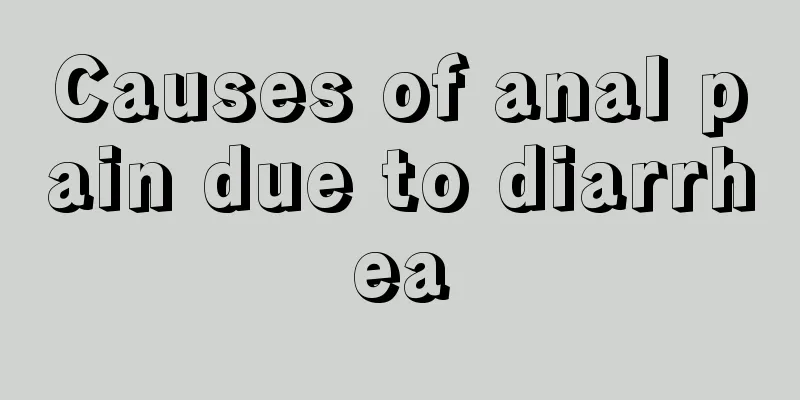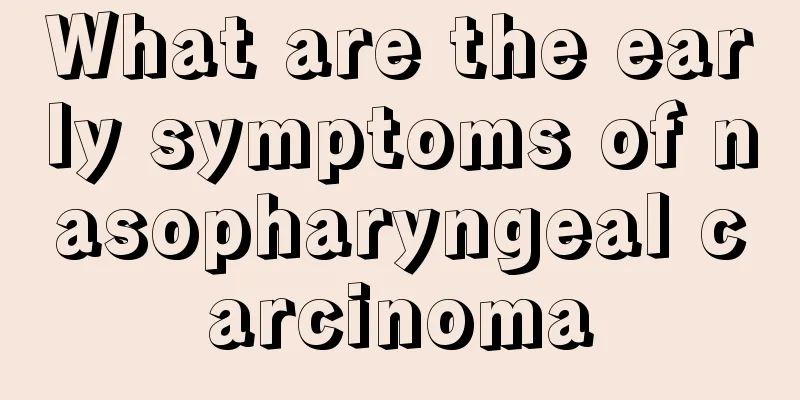I feel like vomiting after eating

|
Nowadays, many girls go on a diet and don't eat on time in order to make themselves look slimmer and more beautiful. In fact, this will have a great impact on our stomach. In severe cases, it will cause acute gastritis, which manifests as vomiting after eating a little and diarrhea. Therefore, you should not go on a diet to lose weight. Let's see what to do if you feel like vomiting after eating. 1. Causes 1. Causes of acute gastritis It can be divided into two categories: exogenous and endogenous. Anything that enters the stomach through the mouth, such as bacteria, drugs, toxins, corrosives, etc., is considered an external factor. Any pathogenic factors that spread to the stomach wall through blood circulation or lymph are called internal factors. Physical and chemical factors such as strong tea, strong coffee, spicy food, strong liquor, overcold or overheated food, rough food, etc. can damage the gastric mucosa, destroy the mucosal barrier and cause gastric mucosal inflammation. Non-steroidal anti-inflammatory drugs such as aspirin, indomethacin, certain antibiotics, corticosteroids and other drugs can not only stimulate the gastric mucosa and cause damage, but also affect the repair of the gastric mucosa and aggravate inflammation. If certain strong corrosive agents such as nitric acid, hydrochloric acid, sulfuric acid, potassium hydroxide, sodium hydroxide, etc. are swallowed, it may cause acute corrosive gastritis. 2. Causes of chronic gastritis (1) Biological factors: The main pathogen of chronic gastritis is Helicobacter pylori, and more than 90% of patients with chronic gastritis are infected with Helicobacter pylori. (2) Immune factors The onset of some chronic gastritis is related to immune factors, and parietal cell antibodies can be detected in the patient's serum. (3) Physical factors such as long-term stimulation of the gastric mucosa by overcold or overheated food, rough food, strong tea, strong coffee, strong liquor, and spicy food can lead to repeated damage to the gastric mucosa and cause chronic gastritis. (4) Chemical factors: Smoking is one of the causes of chronic gastritis. Nicotine in tobacco can affect the blood circulation of the gastric mucosa and cause dysfunction of the pyloric sphincter, resulting in bile reflux. Long-term use of nonsteroidal anti-inflammatory drugs such as aspirin, indomethacin, etc. can damage the gastric mucosal barrier. (5) Other factors such as aging, malnutrition, heart failure, cirrhosis, diabetes, and thyroid disease are all related to the onset of chronic gastritis. 2. Clinical manifestations 1. Acute gastritis The onset is acute and the clinical symptoms vary in severity. The most common is acute simple gastritis, the main symptoms of which are upper abdominal pain, abdominal distension, belching, loss of appetite, nausea, vomiting, etc. Those caused by Salmonella or Staphylococcus aureus toxins are often accompanied by diarrhea, fever, and even dehydration and shock. Acute erosive hemorrhagic gastritis may cause vomiting of blood and black stools. The main clinical manifestations of acute suppurative gastritis are systemic sepsis and acute peritonitis. The symptoms of acute corrosive gastritis are the most obvious, manifested as severe pain in the mouth, throat, behind the sternum, and upper abdomen after swallowing corrosives, accompanied by nausea, vomiting, and even vomiting blood. The mucous membranes of the lips, mouth, and throat can produce caustic scabs of different colors, which help to identify various corrosive agents. 2. Chronic gastritis The clinical manifestations of different types of gastritis may vary, but the symptoms lack specificity, and the severity is often inconsistent with the severity of the lesion. Some patients may be asymptomatic. (1) Upper abdominal pain or discomfort Most gastritis patients experience upper abdominal pain or discomfort. Most upper abdominal pain is irregular and has nothing to do with diet. The pain is generally diffuse upper abdominal burning pain, dull pain, bloating, etc. (2) Upper abdominal distension and early satiety Some patients experience abdominal distension, especially a noticeable feeling of fullness after a meal. It is often caused by food retention in the stomach, delayed emptying, and indigestion. Early satiety refers to a feeling of fullness soon after eating despite having a clear sense of hunger, and a significant reduction in food intake. (3) Belching, acid reflux, and nausea Belching indicates an increase in gas in the stomach, which is discharged through the esophagus, temporarily relieving upper abdominal distension. Acid reflux is caused by increased gastric acid secretion. (4) Other patients with severe atrophic gastritis may experience weight loss, glossitis, and diarrhea; patients with autoimmune gastritis may also have anemia. examine. |
<<: What to do if you accidentally eat a cockroach
>>: Why is there blood all over my butt when I wipe it
Recommend
What are the serious hazards of atrophic gastritis
Gastritis is a common disease in life, but there ...
Why is lung cancer mostly in the late stage? Pay attention to these three aspects
Many people are already in the late stages of lun...
How to put your hair when it curls inwards when sleeping
Hairstyle is very important for a girl. A nice ha...
What medicine should I take to relieve the malignancy of lung cancer
Patients with malignant lung cancer can use chemo...
What are the causes of fibroids
Fibroids are a common disease that many friends a...
What to do if the leg joint is sprained and the tendons hurt
If you accidentally sprain your leg joint in your...
Does white wine reduce inflammation?
The TV drama industry is very developed now. When...
Does staying up late affect hyperthyroidism?
With the development of the times, various electr...
Surgical treatment of pancreatic cancer
The main treatments for pancreatic cancer include...
Can endometrial cancer metastasis be cured?
Endometrial cancer is a group of epithelial malig...
What should be paid attention to in daily diet for nasopharyngeal cancer? What are the nursing measures for nasopharyngeal cancer?
What should patients with nasopharyngeal cancer p...
What are the tests for atherosclerosis
Atherosclerosis is very common in clinical practi...
What are the symptoms of meningitis in babies?
Nowadays, the incidence of meningitis in the worl...
What to do if your face feels tight, peeling, and stinging
As people get older, their metabolism slows down,...
How long can a patient with bile duct cancer live
Biliary duct cancer is a type of malignant tumor....









